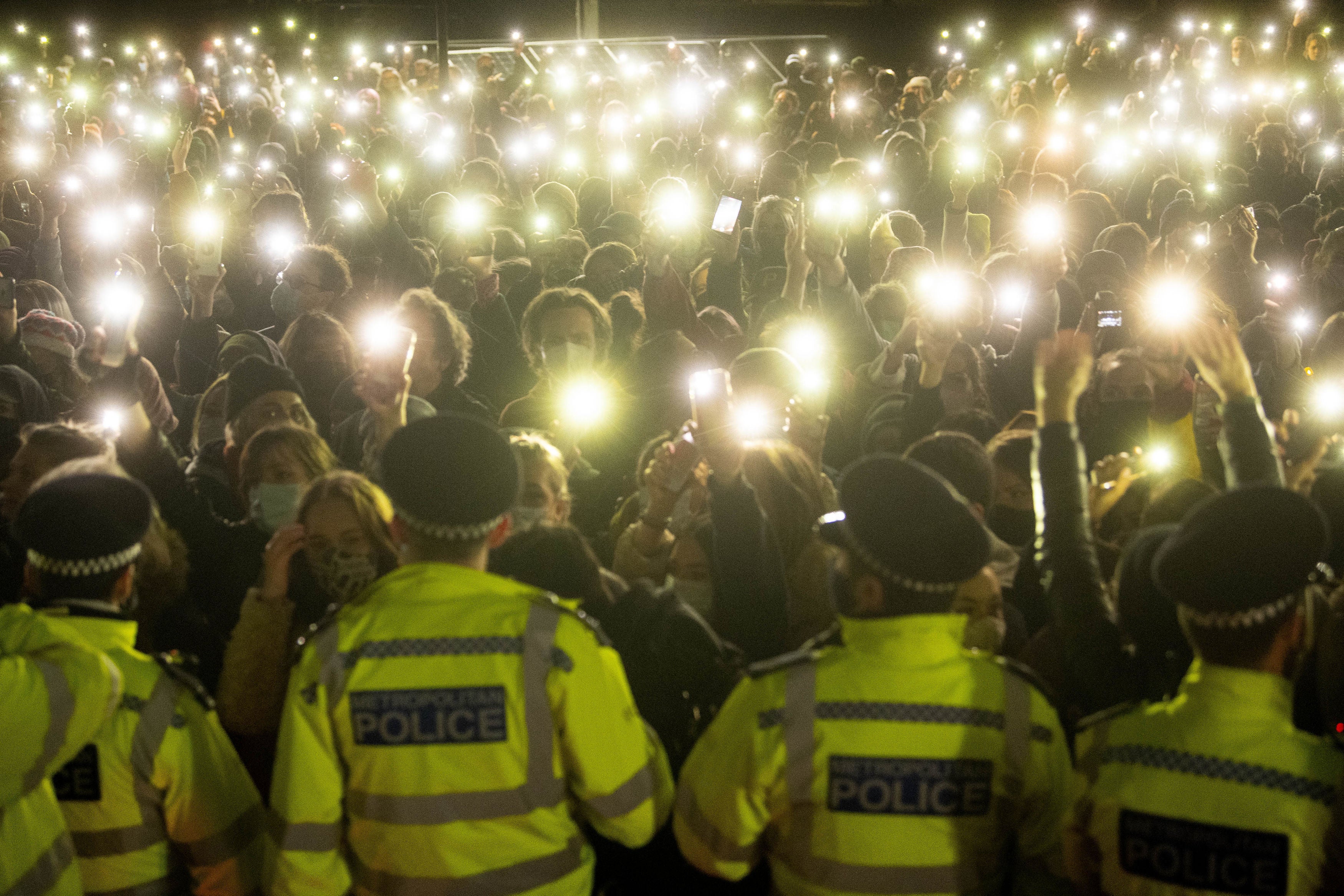Long way to go before Britain’s police forces can truly stamp out sexism, expert panel agrees
Explaining the scale of the problem, former police chief Susannah Fish told our viewers: ‘It’s a barrel, it’s not a handful of rotten apples’

There is a long way to go before police forces in Britain can truly stamp out institutionalised sexism, an expert panel hosted by The Independent has agreed,
On 8 March, to mark International Women’s Day, The Independent brought together a panel to discuss how police forces in the UK are tackling violence against women and attempting to eradicate misogyny.
Three years on from the kidnap and murder of Sarah Everard by Met Police officer Wayne Couzens, our Virtual Event explored how Britain’s police forces have changed – if at all – and discussed what work still needs to be done.
Hosted by The Independent’s crime correspondent Amy-Clare Martin, our panel included retired police chief Susannah Fish OBE, chartered psychologist Dr Jessica Taylor, barrister Harriet Johnson and Abigail Ampofo, CEO of domestic abuse charity Refuge.
Explaining the scale of the problem, Ms Fish told our viewers: “It’s a barrel, it’s not a handful of rotten apples.”
She said: “This current government has no grasp whatsoever or interest in dealing with violence against women and girls and certainly violence perpetrated by police officers and police staff.”
Dr Taylor said the level of cultural and structural change police forces need to achieve has “never been achieved in any sector” and will take many years, adding: “I think the barrel we’re talking about is society. There’s nothing unique about the culture in policing that we don’t see replicated elsewhere, the difference is the power they have.
“They can make decisions that are life-changing, these can be life and death decisions, especially for victims.”
Meanwhile, Ms Johnson said it has taken too long for Met Police Commissioner Mark Rowley to acknowledge the urgency of the issue. “‘The culture you get is the behaviour you tolerate,” she explained, “and as long as we are tolerating this behaviour on some level that will be the culture that we get.
“We have to accept the police ought to be held to a higher standard, not a lower one.”
Ms Ampofo told viewers that all police systems and processes should be urgently refocused. “If you leave people in a position of power when they’re under investigation for violence against women and girls, no matter what you say, you are showing people you are not taking it seriously,” she said.
Watch the entire Q&A event for free below.

Deputy Assistant Commissioner Helen Millichap, lead for Violence Against Women and Girls at the Met, said: “We’ve heard the voices of the women and girls we’ve let down and are determined to improve our service and transform how we protect the public from harm.
“By working with women and girls across the capital, we’re already making London a safer city and building trust with our communities but we also know that there is much more to do and listening must continue.
“We’re using innovative tactics to target predatory men who pose the greatest risk, creating safer spaces for women and girls to enjoy without fear and embedding a culture across the Met where tackling violence against them is a priority.”
And National Police Chiefs’ Council Chair, Chief constable Gavin Stephens, said: “Having workforce built on integrity and professionalism is vital to rebuilding trust and confidence and vetting is just one part of this. We must foster a culture within policing where colleagues feel empowered to report concerns, including misogyny and sexism, if we want to see sustainable change and we want officers to be upstanders, not bystanders.
“National vetting has continued to strengthen its processes over the last two years with a number of changes to improve standards across police forces. Chief constables will soon be given the lead role in misconduct cases and are committed to rooting out those not fit to serve.
“In the year up to March 2023, in cases where chiefs chair hearings, 95% of officers were dismissed or would have been had they not already resigned.In January, over 300,000 officers and staff across the UK were checked against the Police National Database for any new information recorded on them in the largest integrity screening project of its kind. This ensured that those not fit to serve were identified and action taken quickly.
“The vast majority of our workforce are committed individuals who act with the highest levels of integrity and we will continue our work to ensure that police perpetrators of abuse know that there is nowhere for them to hide.”
To find out about our next virtual event and how to sign up click here.
Stand with the 1 in 4 women who will experience domestic abuse in their lifetime by donating to Refuge today.
Join our commenting forum
Join thought-provoking conversations, follow other Independent readers and see their replies
Comments
Bookmark popover
Removed from bookmarks